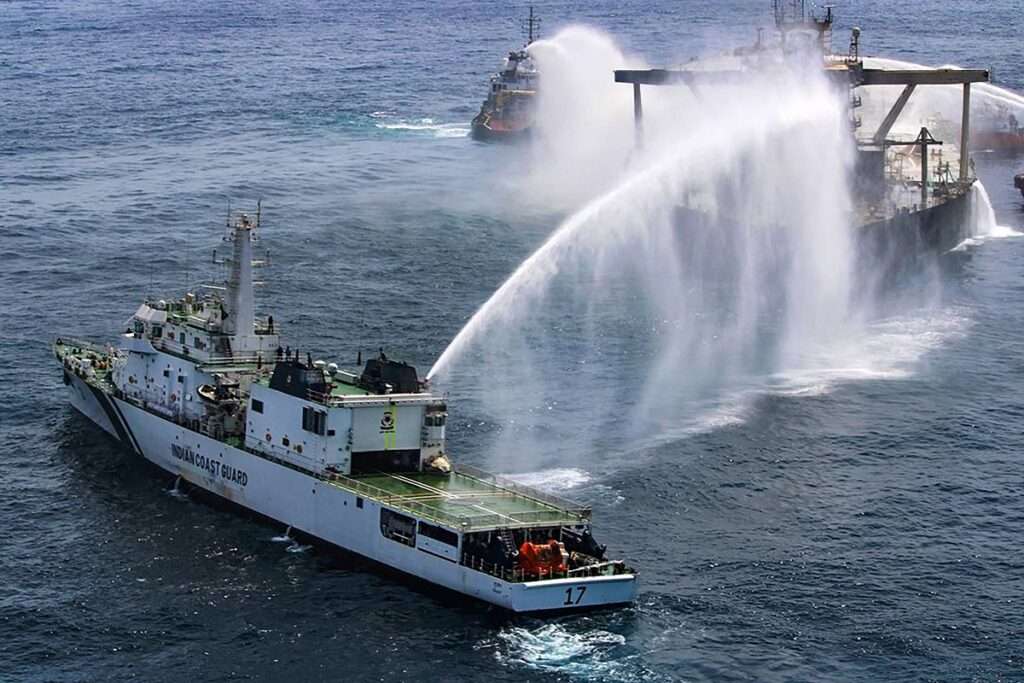On the occasion of World Environment Day 2025, the Indian Coast Guard (ICG) launched a comprehensive ocean cleanup campaign across the nation’s maritime zones, reinforcing its long-standing commitment to marine environmental protection. This year’s initiative focused on removing marine debris and spreading awareness about the harmful impact of ocean pollution, aligning with the global theme: “Land Restoration, Desertification and Drought Resilience.
In a coordinated effort spanning the country’s east and west coasts, the Indian Coast Guard mobilized over 3,000 personnel and numerous vessels in an extensive coastal and offshore cleaning drive. Major ports such as Mumbai, Chennai, Kochi, and Paradip witnessed collaborative activities involving coastal communities, NGOs, and students. More than 20 tonnes of marine waste—including plastics, discarded fishing nets, and non-biodegradable debris—were collected and responsibly disposed of during the one-day campaign.
The operation was not only an environmental endeavor but also a strategic exercise in maritime stewardship. Senior officials emphasized the importance of such initiatives in maintaining the health of India’s Exclusive Economic Zone (EEZ) and preventing the ecological degradation of marine ecosystems. According to ICG Director General Rakesh Pal, “Preserving the ocean is critical for our economy, security, and biodiversity. The Coast Guard takes this responsibility seriously, and today’s campaign is a reflection of our proactive environmental commitment.”
Apart from the cleanup drives, awareness campaigns and educational sessions were held at several coastal locations, engaging local residents and schoolchildren in dialogues about sustainable ocean practices. These sessions included demonstrations on the adverse effects of marine litter on aquatic life and the importance of reducing single-use plastics.
The Indian Coast Guard also showcased its operational capabilities in marine pollution response, with demonstrations of its pollution control vessels (PCVs) and oil spill containment techniques. The use of modern equipment such as oil skimmers and booms underscored the organization’s preparedness to tackle environmental hazards at sea.
This year marks a significant shift in India’s maritime environmental policy, with increased emphasis on proactive environmental action rather than reactive measures. The Indian Coast Guard, as the designated authority for marine environment protection under the MARPOL (International Convention for the Prevention of Pollution from Ships), has been consistently working to implement environmental norms and international protocols.
Conclusion:
The Indian Coast Guard’s ocean cleanup drive on World Environment Day 2025 sets a commendable precedent in environmental leadership. As marine pollution continues to threaten biodiversity and the livelihoods of coastal communities, sustained efforts like these are essential for safeguarding India’s maritime future. The ICG’s initiative is a call to action for all stakeholders—government agencies, private sectors, and citizens—to contribute actively towards a cleaner, greener, and more resilient marine environment.



